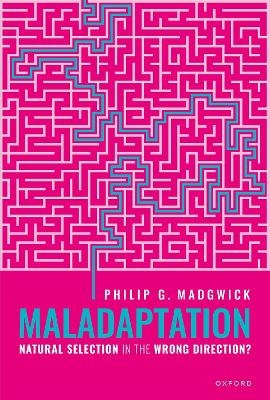
Maladaptation
Oxford University Press (Verlag)
978-0-19-287046-9 (ISBN)
Charles Darwin presented the first scientific explanation of design through evolution by natural selection, where the environment furnishes individual organisms with adaptations that help them to survive and reproduce. This accessible book makes the case that natural selection can also do the exact opposite, favouring traits that directly harm an organism's ability to survive and reproduce. Such maladaptations contradict the received understanding of what natural selection 'does', but become explicable with an understanding of the genetics and ecology of evolution by natural selection.
Drawing upon wide-ranging examples from across the diversity of life, the evidence for maladaptations is critically appraised to establish its possibility, reality and importance to the design of living things. A theory of maladaptation is developed, as a corrective for a long-standing error in evolutionary biology. Examples of maladaptation are evaluated to identify the challenges and successes in applying the concept to organismal traits. The deeper causes and consequences of maladaptation are discussed to understand its far-reaching impact on the evolution of life on Earth - and beyond. Overall, the book persuasively argues that maladaptation is a paragon of the changes to evolutionary theory that are needed to understand the population biology of natural selection.
Maladaptation is written to be suitable for students taking courses in evolution, ecology and genetics, as well as professional researchers in these fields. Its accessible style will also appeal to a broader interdisciplinary audience, including any inquisitive reader with a general interest in science and the natural world.
Philip G. Madgwick has a PhD from the University of Bath on social evolution, preceded by a First Class degree in the Biological Sciences from the University of Oxford, with First Class supplementary honours in the History and Philosophy of Science. He was a post-doctoral researcher at Syngenta, UK, funded by the IVCC, working on insecticide resistance management in vector control, before becoming a research scientist at Syngenta, working in the broad areas of the evolution, ecology and genetics of insect control. Philip remains academically active through publications, collaborations and learned societies.
1: Making room for maladaptation
2: Natural selection through genetics
3: Population ecology of natural selection
4: Maladaptation in social behaviour
5: Maladaptation within the body
6: Maladaptive transitions in complexity
7: Deep origins of maladaptation
8: Revisiting the design argument
Appendix: A simple mathematical model of maladaptation
Bibliography
Index
| Erscheinungsdatum | 22.08.2024 |
|---|---|
| Verlagsort | Oxford |
| Sprache | englisch |
| Maße | 164 x 242 mm |
| Gewicht | 582 g |
| Themenwelt | Naturwissenschaften ► Biologie ► Evolution |
| ISBN-10 | 0-19-287046-7 / 0192870467 |
| ISBN-13 | 978-0-19-287046-9 / 9780192870469 |
| Zustand | Neuware |
| Haben Sie eine Frage zum Produkt? |
aus dem Bereich


